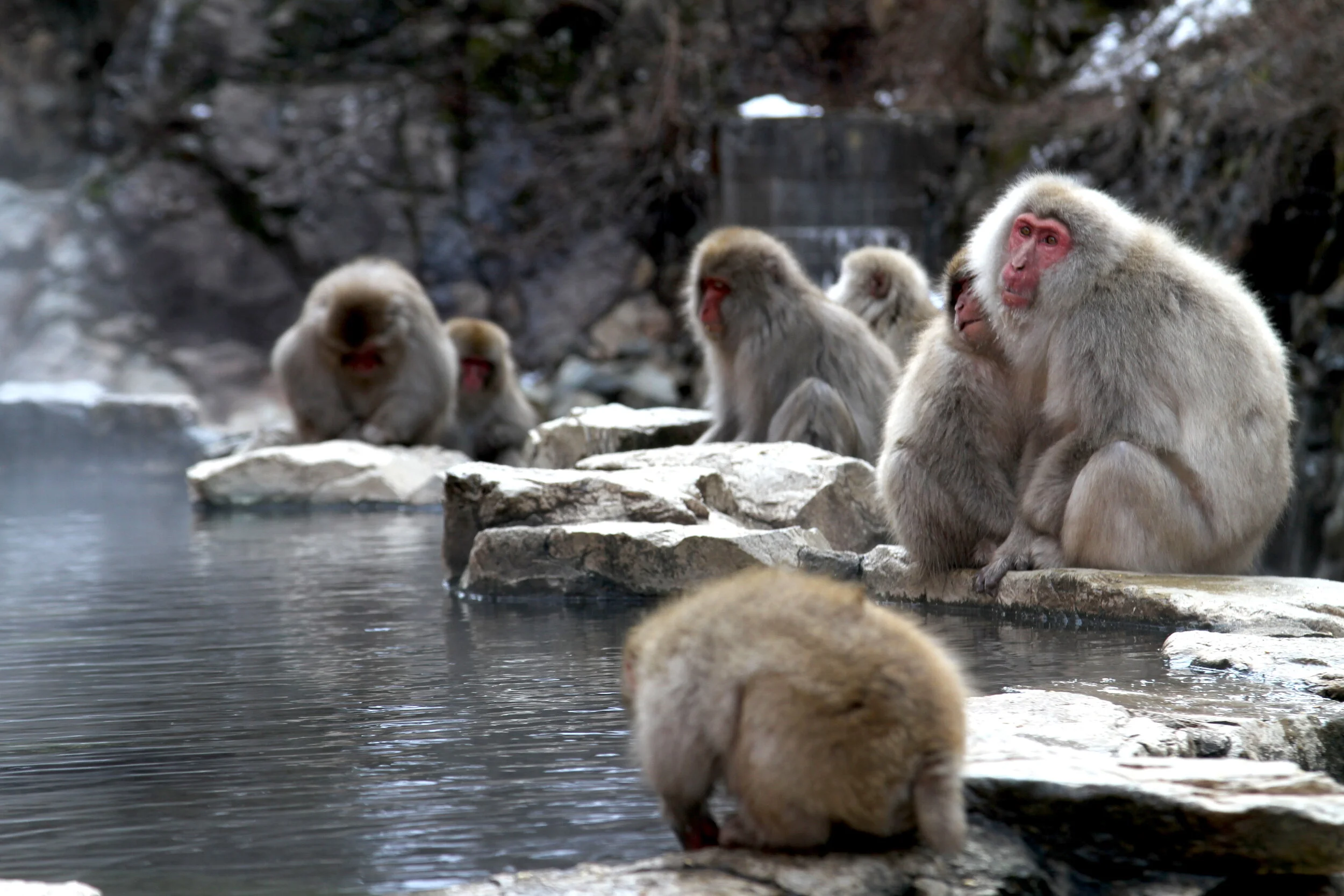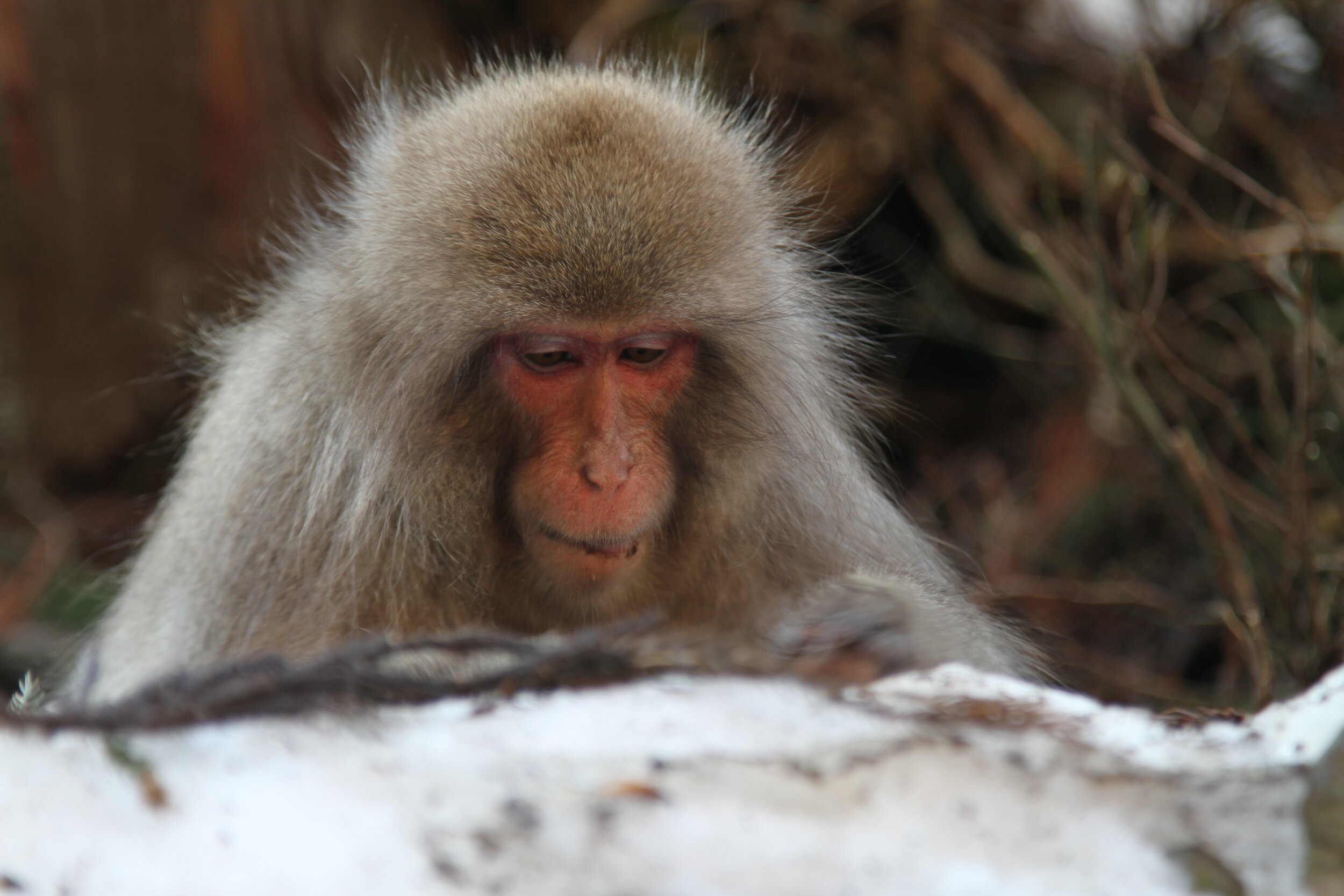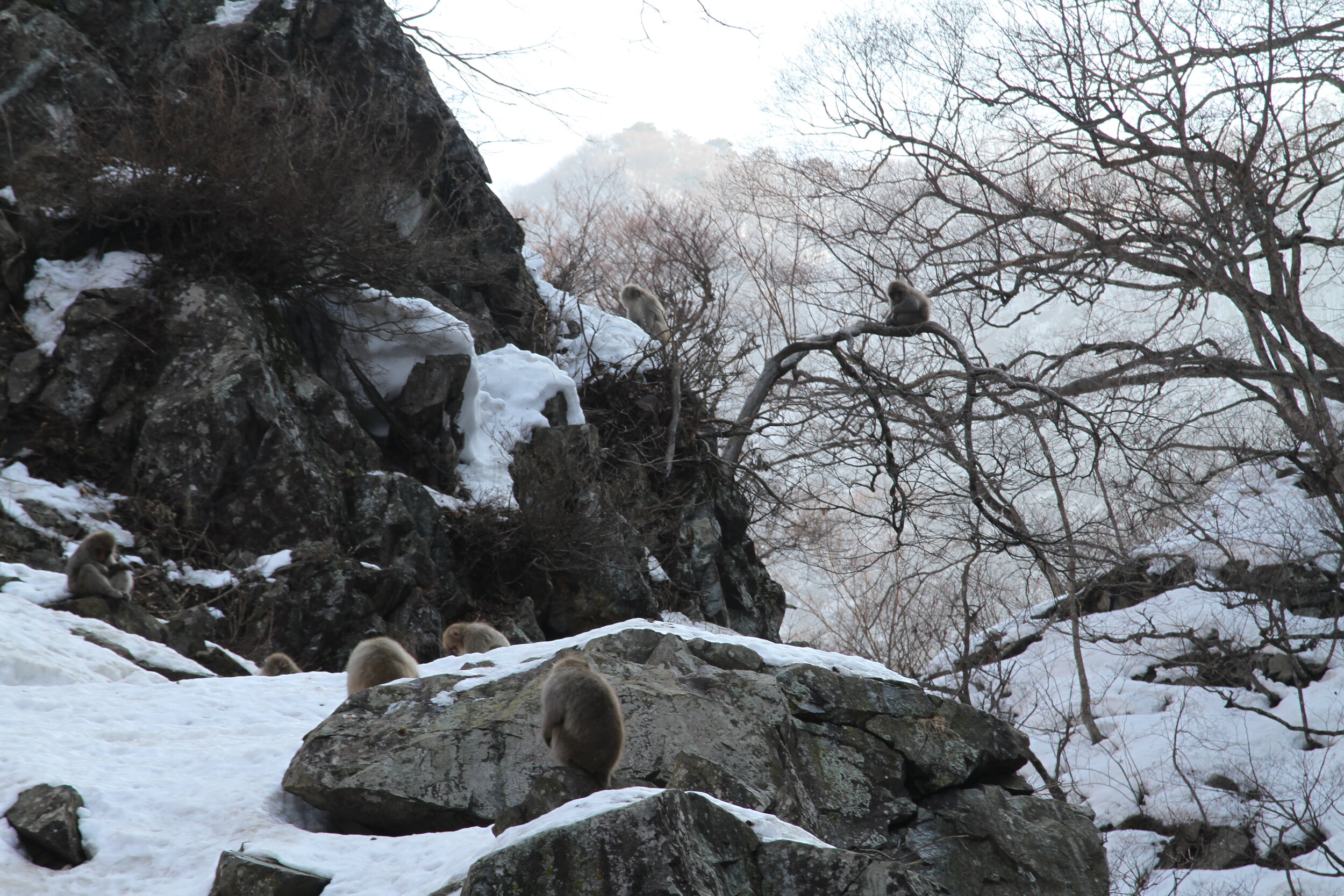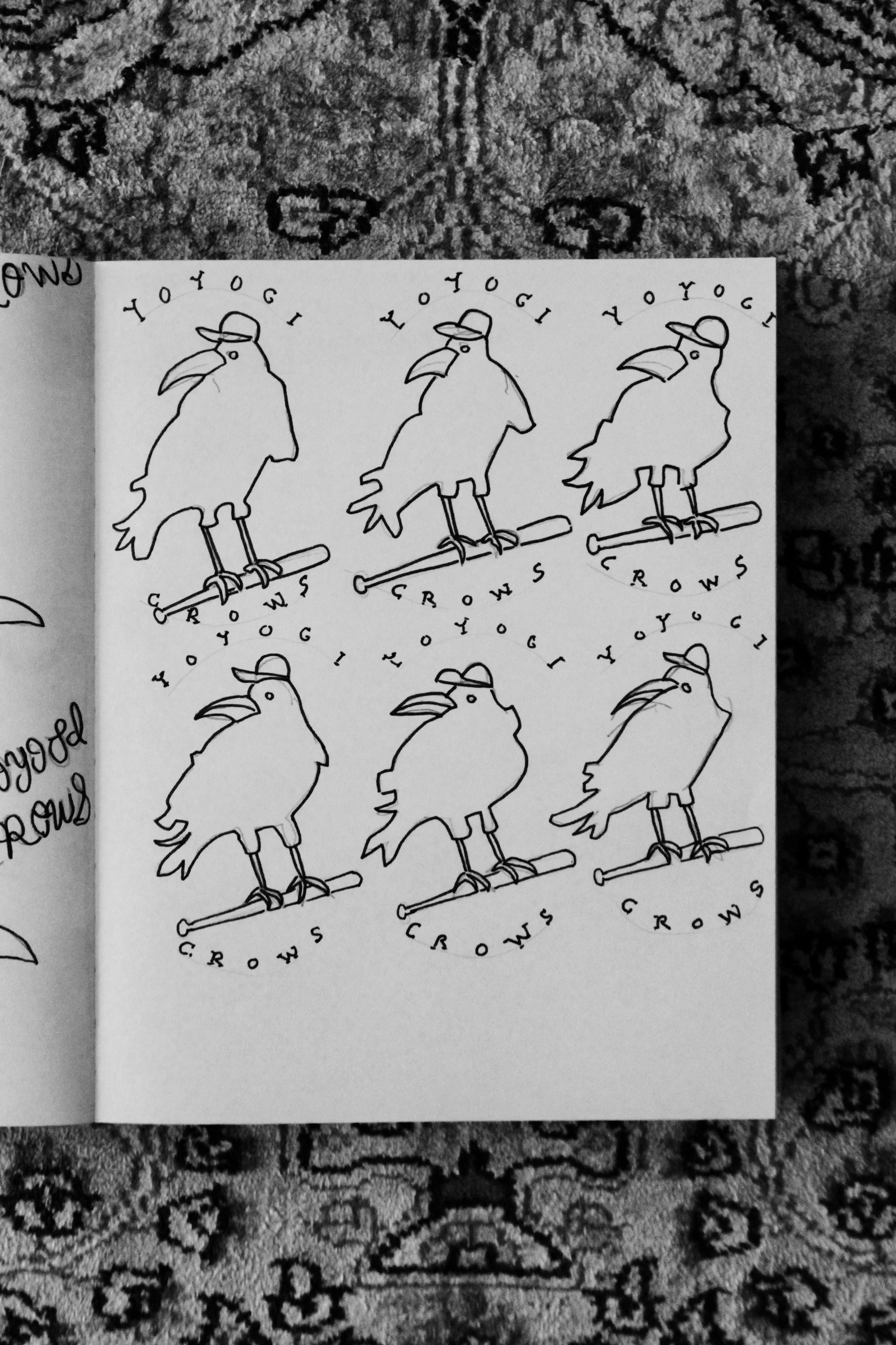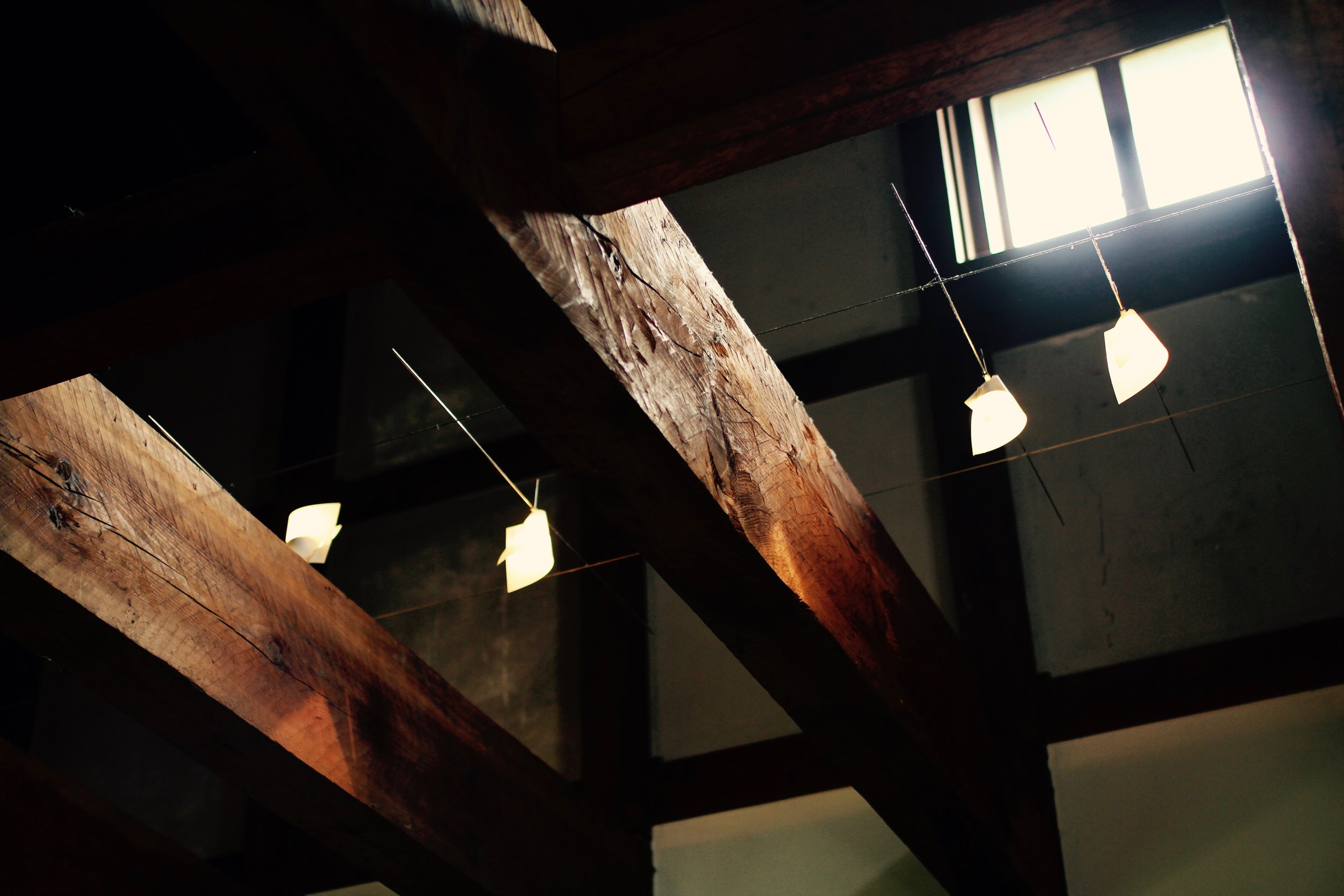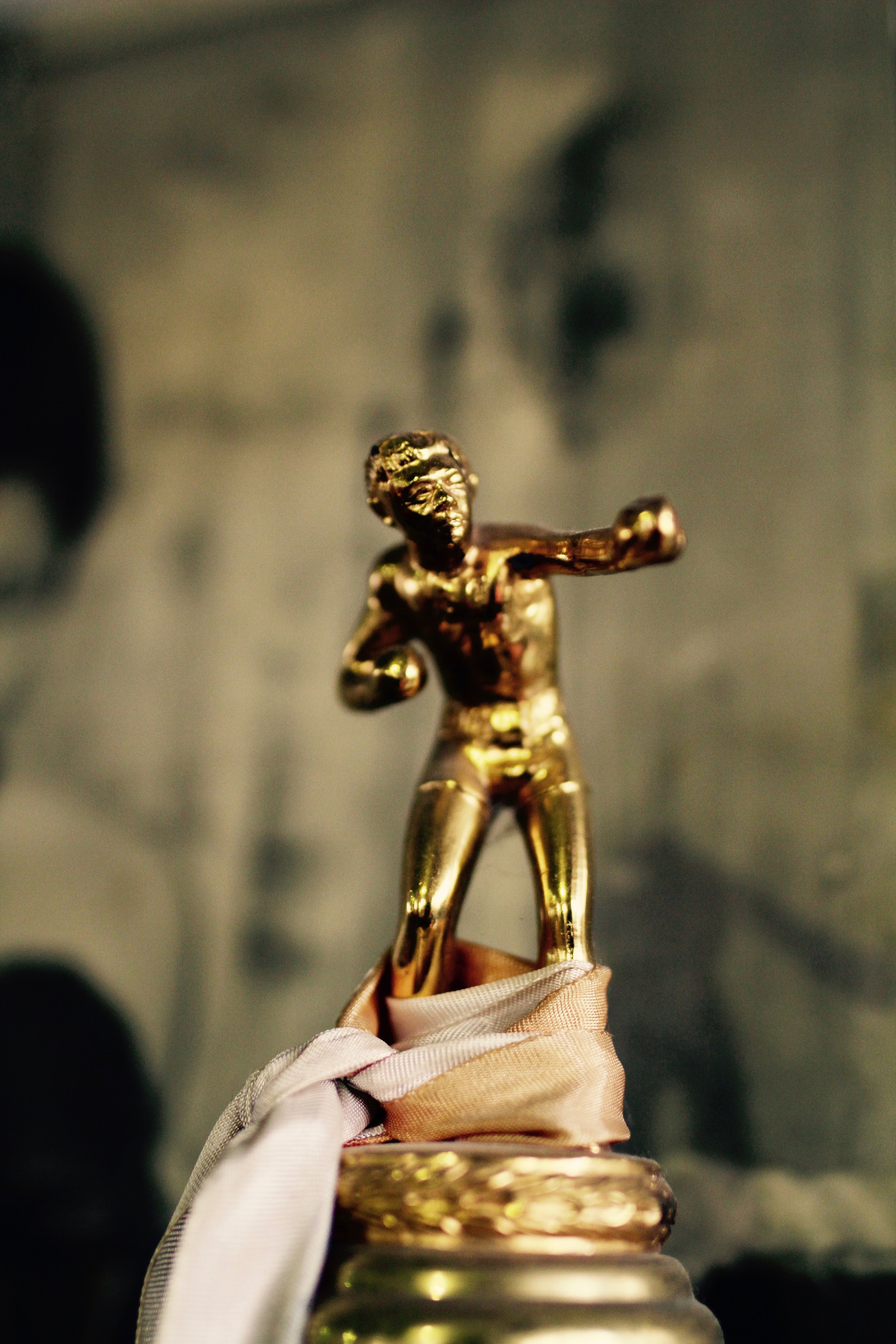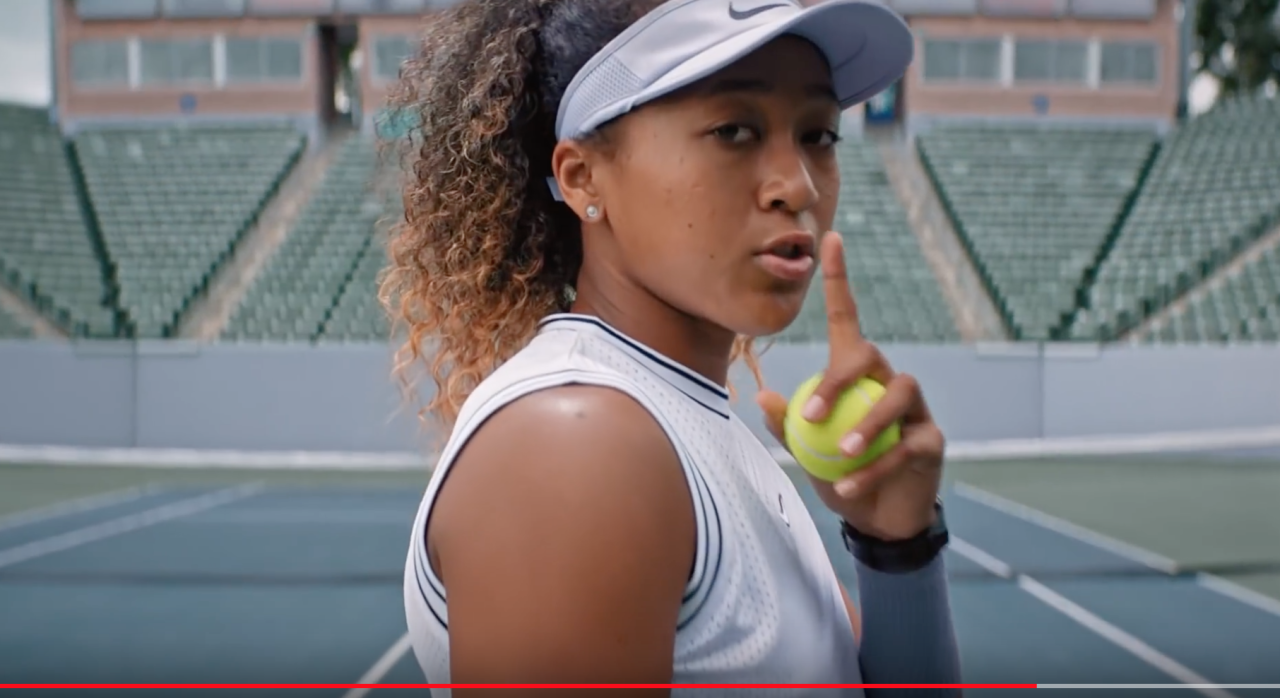A Day observing the famous "snow monkeys" at Jigokudani Monkey Park (地獄谷野猿公苑, Jigokudani Yaen Kōen) in Nagano, Japan. After taking a bus to the park, you hike in about 2 kilometers until you get to the main gathering point of the snow monkeys. In the valley, the monkeys roam free, mixing right in with the visitors. As you approach, you find them walking along the path with you, jumping down from the nearby trees and generally moving all around the vast space. When it gets cold enough, the monkeys gather in the natural hot spring (onsen). The day we visited it was fairly warm, so no monkeys were in the onsen. But there were still hundreds of them running, playing and eating all over the place.
japan
GAME 1: YOYOGI CROWS VS. BURNSIDE FREERANGERS
Sport returned last Friday night with an emphatic shot to the soul.
Out at Yoyogi Grounds, the polarizing baseball folk hero, Rockabilly, blasted a three-run home run against the visiting Burnside Freerangers, deep into the forests surrounding Meiji Shrine. Local baseball otaku are still scattered trying to track down the ball.
The soaring homerun was the highlight of the day, that saw sport returning to the world since nations around the globe have moved into lockdown. When asked if his play meant anything special during this moment of global uncertainty, Rockabilly simply said, “I’m not on Twitter.”
Rockabilly is a part of the legendary lineup of baseball’s known as the Yoyogi Crows. A baseball outfit with colossal ability. In this moment, their talent is only outstepped by the significance of existing as the only sport left on earth.
Against the dramatic premise, between the chalk lines, baseball remained the same. Steadily unfolding to the same rhythm it always has. Marking the times by not being changed by the passage of time. Mixing talent with luck. Elevating heroes and fitting others with goat horns.
THE CROWS BEAT THE BURNSIDE FREERANGERS 16-8
Annnnnnnddd Now.... Your Yoyogi Crows!
Sport may have paused around the world, but that hasn’t stopped the Yoyogi Crows from continuing their hardball dominance. Because the Crows are rebels—and they’re also a highly fictional motley crew of sandlotters. They’ll play nine innings against anyone foolish enough to cross over their chalk lines. For the Yoyogi Nine, hope never went anywhere. Play Ball!
Whether he’s moving up the middle to rob a base hit, or moving his hips to excite the tourists gathered outside of Yoyogi Park, Rockabilly always gives the people what they paid for—rock solid results.
The reliable veteran uses its triangular presence to anchor the diamond and provide leadership that results in constant digs and double plays.
Nothing cleans up the bases like this fully stocked Vending Machine loaded with energy drinks and Japanese performance enhancing elixirs.
Tokyo Typhoon Extreme Weather Tourists
The biggest typhoon of the past several decades hit Tokyo last weekend. Living near the center of the city, we were curious what things would be like at ground zero, before the peak of the typhoon arrived.
Before we set out, we looked at a couple of live cams of Shibuya. There were only a handful of people out, toting umbrellas and braving the elements. But the winds didn’t seem to that intense at the moment, so we looked at each other and decided to go check it out first hand.
We rolled over to the bus stop a couple of minutes from our house. Luckily a bus was just pulling up when we arrived so we hopped on. There were only two other riders on the bus. So we could already feel the effects of the evacuation mentality. We rode all the way to Dogenzaka, making no stops on the way as no one was at any of the bus stops.
When we left the bus, it was only raining lightly. It was still sage to use your umbrella and not have it blown apart by high winds. We walked the deserted alleys and streets around Shibuya station. Many of the shops and cafes had fully boarded up windows, giving the whole environment the look of an apocalyptic movie set. We continued on, walking the empty streets and snapping the occasional rare photo of a barren Shibuya.
We were on a scouting mission to see if anything was open. Being around noon, we had lunch on our minds. With the boarded up windows, it didn’t look promising. However as we walked Basketball Street in central Shibuya, we saw a light burning brightly in the distance. As we approached the window, we discovered it was a ramen shop—working at full capacity. Just looking in the window, you wouldn’t guess the circumstances odd at all. Chefs moved in tight choreography. Spinning, draining scoops of noodles, stirring vats of steaming broth. All as happy customers slurped away as on any other day.
And who were all these fools inhaling ramen under these locked down circumstances? Were they all reflections of us? Disaster tourists? Or rugby fans eating off the pain of cancelled games. Or bitcoin miners waiting for the conference to resume.
After a leisurely and dry lunch, we headed back into the streets in search of more nothingness. The rain now more persistent. The drops bigger. But still no wind. We ducked into Don Quixote. The meme-like Japanese super everything store. Whose multi-jingles and enthusiastic staff were on full blast. Ramen and Don Quixote, the two pillars of Tokyo remained unfettered by the weather event outside.
We picked up some batteries and spare lightbulbs because they were on our shopping list. Then we walked on. The rain amping up even more.
At the crossing, cameras and reporters stood in the elements talking to the random handful of folks passing through. We were stopped. They were doing something for British TV, around rugby. But with the games called off, they turned into typhoon chasers. They asked if we were here for the rugby or the bitcoin. Sadly no. They asked if we thought the typhoon was going to be bad. I said something about reports usually being overblown. At which point a gust of wind blew back my umbrella, shattering the skeletal core beyond repair. With any luck, I’m some sort of meme to American ignorance in the UK thanks to the comic timing of a gust from the god of wind.
From the interview on, the weather turned increasingly violent. We turned into the tunnels above and below Shibuya station, and walked their empty halls. Every now and then we’d pass another explorer like us. Earlier we had thought of walking home, but with the winds, we caught a cab. One of a hundred lined up at the station after the buses and trains had stopped. We rode home and looked out the window for the rest of the day as the winds pended. The trust of the typhoon came at night, after the house was asleep. But our photos and videos of a barren Shibuya made our wet excursion to the city center worth it.
Saturday with the National Pastime in Japan
Time was when baseball was the American pastime. It may still be in name, but recently football and basketball have broken away to the top of the American psyche. Baseball is still a major sport, but it no longer holds the urgent, most relevant place in the nation’s heart.
Hop the Pacific Ocean to Japan. Here, baseball has deep roots and a culture unto its own. The major leagues see the fruits of Japan’s baseball culture with the yearly all-world exports that come to America. The culture that is spawning these talented ballplayers runs deep. It’s baseball, but it’s also not an exact copy of the American version. It’s not even called baseball for starters. It’s YAKYU. It has its own rhythm, tradition and strict belief system born out of the Japanese spirit.
Japan has made the game of baseball their own. Transforming it into its national sport on its terms.
Baseball is everywhere. Walk down the streets any day of the week and you’ll notice packs of young ballplayers, in full uniform and helmets traveling around like rabid baseball gangs. With bat bags and gear in tow, they travel in full team packs. They head to and from practice. They stop and take shadow cuts in the alleys. They worship the game. A visual reminder of how pervasive the game is.
On the subways, people of all ages wear the hats of their favorite Japanese league teams. Young school kids hang stuffed team mascots from their backpacks. On game day, people will fully gear up in uniform, hat, holding tenants or plastic team bats. More baseball worship throughout the city.
On Saturdays, working men and women turn out to the local ballparks, in full uniform, to play the game. Here they use a rubber ball and sometimes play double or triple headers. These fully uniformed men and women, looking like pros, glide by on their bikes or scooters, racing to assemble at the fields. Many of them play for corporate, company sponsored teams. They play other companies. Coming together over baseball.
Locals stand and populate the bleachers, watching the hyper local leagues play their games. The talent level is amateur, but it’s full on baseball. Minus the hardball. But they keep at it, weekend after weekend. Holding onto the game in their way. Going through the routines. Swinging bats and limbering up before the game. Watching the previous game finish up. Communing with the gods of baseball. Or Yakyu rather.
In summer, the nation turns its psyche towards Koshien—the all Japan high school baseball tournament that dominates all media. Stars here become legends that endure for decades. Baseball in Japan rewards its followers with immortality.
As I pass by these Saturday games and observe them from the outside of the fence, I tip my cap to their diligent diamond worship. In a country where sport doesn’t hold the same cultural significance as it does in the west, there is something deeply significant with Japan’s connection to baseball. The inspiration and nostalgia moves me. All hail the national pastime. To Yakyu, the vehicle which transports the Japanese spirit. And every weekend, it gains a head of steam, rounds third and heads for home.
Here Comes Rui Hachimura...
With everyone in NBA circles focused on the hype around Zion Williamson, I think people might be sleeping on Rui Hachimura. While he was a very much heralded lottery draft pick (the first player from Japan to ever go that high) he wasn’t necessarily viewed as a slam dunk. He was seen as athletic, unselfish and pretty much viewed as a defensive specialist. However, this is a guy who has shockingly only been playing basketball for about seven years. And given the leaps he took at Gonzaga in his second and third years, it’s not ridiculous to imagine another leap or two from what we’ve already seen. With his play in the recent FIBA world basketball championships, he showed that he could carry the offensive load, and at times even dominate. This was something he didn’t need to show on a more balanced Gonzaga offense. But now that he has shown the ability to dominate on both ends of the court, I expect his stock to rise even more. There will always be an adjustment period for rookies as their bodies get used to going against much larger and more athletic players. But the flashes Rui has shown could turn into something truly special once he hits his NBA stride.
And Now... Your Yoyogi Crows!
Fables of the River
Swallow…
Just one more cover.
I beat through field-dusted artifacts,
To Sun streets gone.
Your blur, free streaming ahead.
River Legends,
Have hidden speeds.
Body behind it perfect nobody.
Sun mountain just can’t picture.
Faltering behind steaming hand writings.
The field,
Where your chairs fall.
I, body, and all time.
Cuts streets.
A Bull’s post.
Free before slight lines.
See plans behind hidden ears.
Below sweet mountain.
Nobody locks all your culture.
Can’t blur that through more ghosts.
The train,
Breathing before the steaming river.
Cross dry, perfect suns.
All speeds of us,
Cut waves wide open.
By Oyl Miller
From the Land of the Rising Heat
Roki Sasaki.
The next monster of one hundred years.
A spindly 16-year old who was born to hurl a baseball. To throw at blinding speeds. All of his long-limbed body folding and unfolding in proper timing and efficiency, to unleash a sonic boom with the snap of his right wrist. Eliciting oohs-and-ahhs with every blaze of glory. Poor high school hitters, trying to make sense of phenomenal warp speeds—fanning blindly at the gust of baseball wind rushing past them. Failing with the futility of trying to drink soup with a single chopstick. No chance in this world or any other.
It is the stuff of anime or manga lore. A Chosen Boy, rising to national prominence. The Japanese Dream. Gracing the nation’s newspapers. Dominating long segments of airtime on nightly primetime. Triggering the tweets of celebrities. A whole country in rapt attention of Sasaki’s mound exploits. If you’ve been following Japanese baseball for any amount of time, you know the cadence and intensity the country’s mainstream fervor burns with. You’ve experienced the hallowed tones used to speak of these myths who emerge from the depths of Japan. Splashing to the surface fully realized, heaven sent from the mountain top, into the spotlight of Japanese media hysteria. First there was Dice-K, then Darvish, then Ma-kun. All moving along the celestial baseball timeline. Now, here stands Roki Sasaki. Number one in your program. Number one trending topic.
There is an obvious innocence when you see Roki standing on the mound. He’s just doing what he’s done every day of his life. It’s impossible for him to know that the very axis of baseball power now spins around him like a tightly wound slider.
It’s impossible for him to know that a single speeding fastball from his fingertips, topping 100 mph cracks the earth to its very core. That it sends a tremor over land and cyber space. A single Sasaki pitch, in less than a second, travels the world. The smack of the catcher’s glove, mass broadcasting a clear message. Announcing a presence. A baseball Spector. A new man-child has awakened in Japan.
Ready your scouts.
Prepare your fanbases.
Notify your coaches. Ping the redditors. The hype is resonating. Empty your pockets and prepare your best offers. Work on your Japanese etiquette. For soon, baseball innocence will be ready for market. This innate ability is available to be bought and sold. This lively arm is ready to join the arms race immemorial between Yankees and would-be-Yankee-killers. Always just one mystical pitching arm away from tipping the balance of power in the baseball universe.
Roki knows not which chalk line he is drawing nearer every day. His moment of crossing is coming. The final inning change. Until then, the redditors are worm-holing deep into a wikipedia frenzy. The American sportswriters are firing up their mobile word processors. We’ve got a live one here boys. Hear that? That’s the sound of a thousand bloggers cueing up lofty think pieces lauding the modernity of American baseball’s reliance on science, and bashing the archaic ways of Japanese ball that would put young pitcher’s arm in danger through stoic, traditional overwork. For in Japan, pitchers throw everyday without mercy. Without rest. (And in the darkest parts of Japanese baseball, without water.) For here, pitch limits don’t exist and taking a starter out of a game is viewed as a sign of weakness.
Young Roki is sparkling culture shock in the sporting world. The presumptuous and stubborn East versus West debate. Old school versus new school. Wrong versus right. Crystalized through the lens of sport. One of the most rooted in tradition sports. Which has yielded vastly different mentalities and ballplayers on two sides of the world.
Young Roki? He’s just trying to climb to the top of Japanese baseball Mt. Everest. He stands now on a Mt. Fuji peak, ruling Japan, and looking to claim legitimate baseball immortality by powering his team all the way to the Koshien title. To win the national high school baseball tournament. For in Japan, this conquest carries a perpetual cultural royalty. It’s a deep sporting honor on par with rising to national fame during March Madness. Even millionaire Japanese MLB stars, like Dice-K and Darvish still speak in reverent tones about their time at Koshien. Considering it the crowning jewel of their careers. For better or worse, it’s all down hill from the cultural highs of Koshien.
Hence the intense burn. Hence the meteoric pitch counts. Hence the literal embrace of giving everything for the good of your team. It’s an iconic sacrifice that echoes the Japanese love of the collective. The country rallies around, imbuing itself with a self-confirmation of their national identity, holding a mirror up top who they really are, all by living vicariously through young sports stars in the national spotlight. Young icons who leave fleeting but indelible impressions on the psyche of a nation.
And so now, in this moment, the world turns to Roki Sasaki. It turns for Roki. For now he unwittingly shoulders the weight and soul of this island nation. Shoulders that are still developing, that are already capable of unusual feats of diamond magic and of turning the world’s head with the snap of a lethal, embarassment-wreaking breaking ball.
Enter Roki Sasaki.
The Magic of Fresh Noodles and 100-Year Old Bricks
Tokyo Restaurant Review: Kamachiku
In the backstreets of Ueno, Tokyo, there exists a hidden gem. Buried in a tangle of unnamed streets and residential alleyways lies a transcendental udon shop called Kamachiku. Behind a pristine grove of bamboo shoots lies a 100-year old traditional brick warehouse. The historical building has been restored and renovated by famed Japanese architect Kengo Kuma—the visionary builder famously designing the innovative Tokyo 2020 Olympic stadium.
The warehouse turned udon shop is a far less public statement, but nevertheless, inspired turn of form. The central dining room has been carefully crafted inside the walls of the historic warehouse. A modern, primarily glass outer dining room has been built out from the warehouse, in a space next to a picture perfect Japanese garden. A long, single wood dining table fills the main hall, with seating for up to about 14. When sitting at this table, you essentially feel as though you are dining in the garden outside.
Kamachiku’s signature dish are their traditional Japanese wheat flour, udon noodles. Made fresh daily in the traditional Osaka style, the chefs only serve the noodles for as long as the day’s batch lasts. The menu also features a variety of side dishes, including a precisely prepared assorted tempura dish.
Although hidden away, don’t expect to find a seat if you stumble upon Kamachiku on a weekend. As the lines begin to form well before opening at 11:30. It’s best to get there a half an hour early and sit in the row of chairs set up along side the bamboo grove and Japanese garden. You couldn’t wish for a more ideal setting to wait for a fresh meal in such historic, yet modernized surroundings.
Website:
http://kamachiku.com/
Address:
2-14-18 Nezu, Bunkyo-ku, Tokyo
Kamachiku: Kengo Kuma’s 100-year old Japanese warehouse turned udon shop.
Kamachiku’s signature udon.
Exquisitely prepared, dry tempura and salt.
Detail of modern wood beams brought in to restore the interior of the warehouse.
The star of the exterior, 100-year old Japanese brick.
Glory Days
Commute
Stumbling home.
By vending machine’s light.
Vision blurred and mind slurred.
Power-walking someone else’s steps.
Neon high of elevated window lives.
Laughing at the little shadow.
With the backpack and lost time to find.
Naomi Osaka slams reporters who ask her to speak in Japanese with new Nike commercial
Our new Nike commercial for Naomi Osaka was covered by Sora News 24. It’s always nice when your work ends up sparking a conversation. Click here to read original article.
Naomi Osaka slams reporters who ask her to speak in Japanese with new Nike commercial
”Osaka has just one word to say in response to all those annoying questions about her ethnicity and her love of katsudon.
Since winning the Australian Open and the U.S. Open against her idol Serena Williams, Naomi Osaka has taken the top-spot in the Women’s Tennis Association rankings, becoming the first Asian to hold the top spot in either men’s or women’s tennis.
Her success has brought her a lot of attention from the media, particularly in Japan, where her love of katsudon (pork cutlet rice bowls) and her half-Haitian, half-Japanese background remains a solid talking point. And one thing Japanese reporters can’t stop themselves from doing is asking her to answer their questions in Japanese.
After shutting down these reporters in the past, Osaka is now returning to address them and all others like them, with a new commercial for Nike. In the ad, she slams back at all the insensitive and impertinent questions that get served to her during interviews, and has just one word to silence them all.”
Take a look at the ad below:
In the clip, Osaka can be seen on the court, showing off her strong playing style as a volley of questions roll by. There’s “Who’s your biggest rival?”, “Are you a hard court specialist?” and “Do you consider yourself Japanese or American?”
Then there are a few questions in Japanese, including “What are you going to buy with your prize money?”, “Can you answer in Japanese?” and “Will you eat katsudon again today?”
How you feel when your love of katsudon comes up every time you’re interviewed.
Then, at the end of the ad, Osaka turns to the camera and has just one thing to say in response to all those questions.
In true Nike style, the clip delivers a strong message at the end: “Don’t change yourself. Change the world.”
It’s a message that fits in nicely with Osaka’s public image, as a woman who continues to do her own thing while drowning out all the stereotypical questions from the media who want to place her in neat, narrow-minded boxes.
And judging from the reaction online in Japan, it’s a message a lot of Japanese people agree with too.
“What a fantastic ad! I hope everyone sees this.”
“Some of the questions in English are annoying but the Japanese questions are even more annoying.”
“Such a great insight into what she has to deal with every day.”
“Japanese reporters need to watch this ad.”
“The Japanese media need to have more respect for her as an elite sportswoman.”
The Nike ad has definitely got everyone talking, and while it takes a different approach to one of her previous ads for Japanese brand Nissin, it’s definitely a step up from the controversial ad that whitewashed her appearance.
It’ll be interesting to see if this new commercial will have any effect on the types of questions reporters plan to throw at Osaka next time she does a round of interviews. Hopefully they’ll reign in the talk about katsudon and her ethnicity, and focus on her contribution to the world of sport, because as the star tennis player has said in the past, regardless of her dining preferences, background, and language ability, “I’m just me.”
(Article by Oona McGee)
